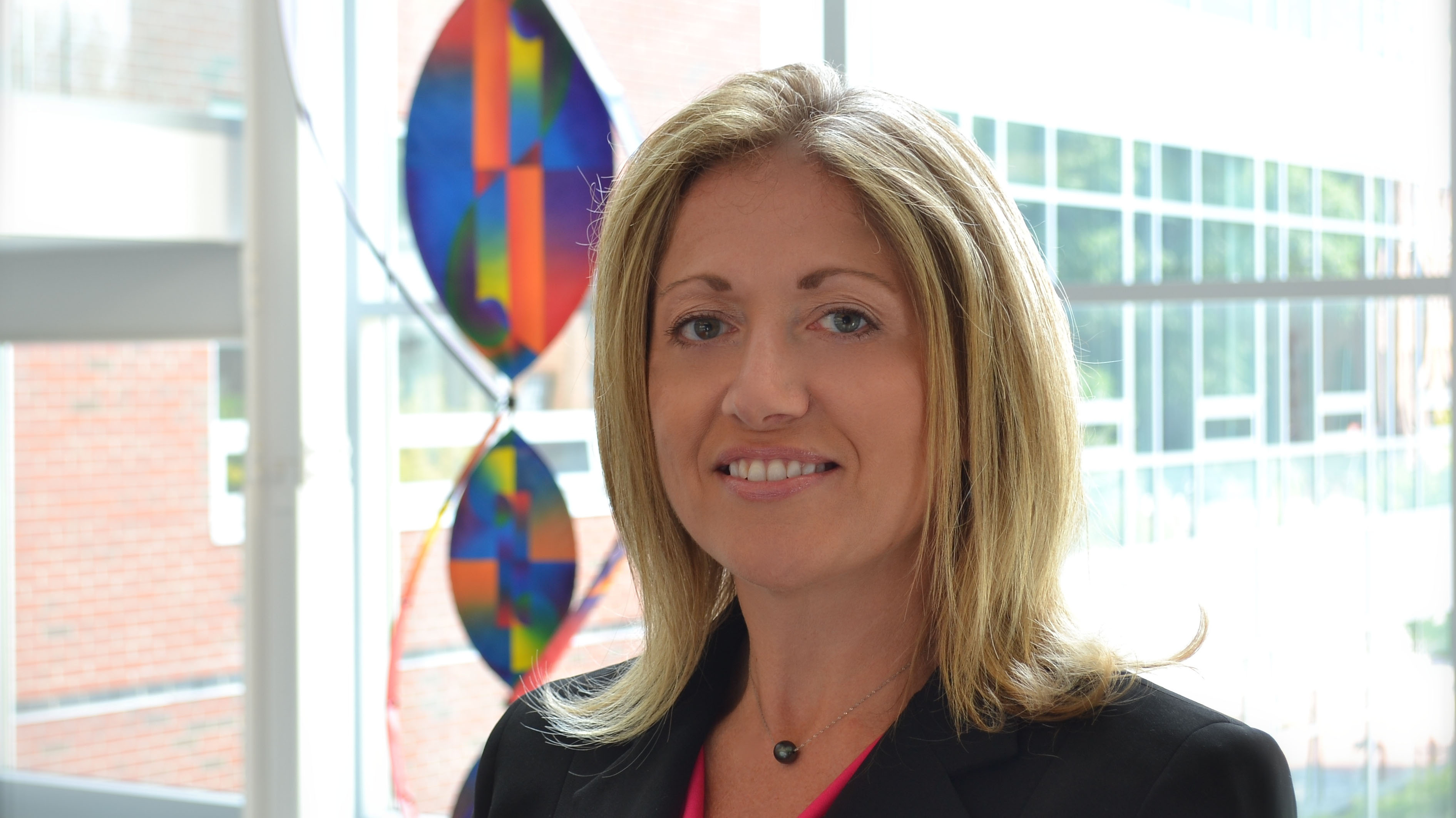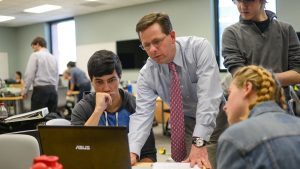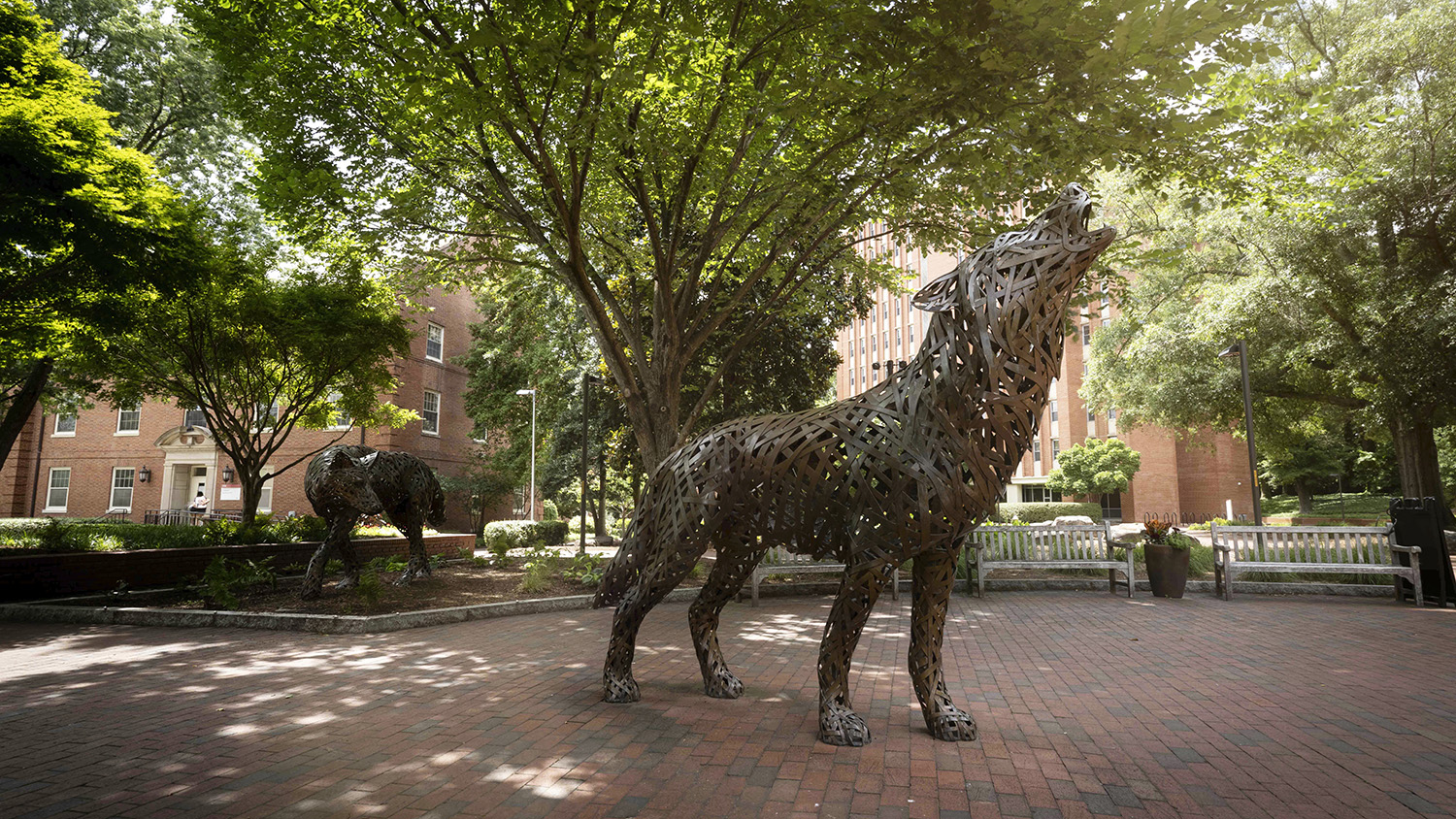Advocating for More Balanced Faculty Workloads

Faculty represent the cornerstone of NC State’s rich learning environment, engaging the university community through research, teaching, mentoring and service. The Faculty Workload and Rewards Project aims to help faculty better balance these facets of academia through targeted communications and evaluation of time commitments.
The National Science Foundation-funded project, conducted in a partnership led by the University of Maryland, involves science, technology, engineering and mathematics (STEM) and social science academic departments from Maryland, North Carolina and South Carolina. Audrey Jaeger, Alumni Distinguished Graduate Professor in the Department of Educational Leadership, Policy and Human Development, leads North Carolina’s project participation. The Textile Engineering, Chemistry and Science Department Department at NC State is one of the project’s participating departments.
“The Faculty Workload and Rewards Project examines workload inequities faced by faculty, especially by women and people of color,” said Jaeger. “We aim to transform outmoded workplace structures and cultures that maintain inequality through helping faculty increase transparency and communications efforts about what and how much they actually do.”
Creating Structure
Participating departments are nearing the end of an initial 1.5-year study consisting of four workload interventions. These interventions cover: 1) the creation of workload dashboards to promote transparency of faculty activity; 2) adjustments to workload and rewards systems to improve inequitable workloads by race, gender and career state; 3) professional development pertaining to workload management; and 4) department-wide faculty training focused on uncovering unconscious bias and learning how various organizational practices impact faculty careers.
Often, workloads and rewards systems reflect a bias toward valuing research over service and teaching, which may perpetuate inequality between men and women. The project is the first of its kind in the country to address causes of gender inequality and faculty workload.
Due to these and other issues, project goals for interventions include the following: workload reduction and rebalancing, better identifying challenges in making teaching and service assignments, solving diversity and retention issues, better communicating faculty workloads to impacted communities, and learning from colleagues at participating universities.
Addressing Workload Issues
“Research continues to show that women and people of color do more service work in institutions, but this work isn’t always visible, and all faculty need to be more aware of workload issues,” said Jaeger. “By addressing these issues of equity, we’re working on improving career trajectories and addressing academia’s leaky pipeline of women and people of color facing barriers to moving up the ladder to associate and full professorships.”
Workload dashboards, a focal point of the Faculty Workload and Rewards Project, aim to show exactly where a faculty member spends their time and what kinds of work they engage in on a regular basis. Participating faculty list courses taught, numbers of advisees and mentorship responsibilities, committee service commitments and time involved, current research grants, publications, and presentations, among other commitments.

“All faculty are asked to do quite a bit, but so many are doing more than their fair share,” said Dr. Jeff Joines, associate professor and head of the Textile Engineering, Chemistry and Science Department, which is NC State’s participating department in the project. “If you aren’t documenting what you’re doing, then people aren’t going to know, and the dashboards help to create balance. From our department’s participation, we’ve increased our transparency and learned how to deal with implicit bias and other issues that impact faculty workload.”
Examining Rewards Systems
Figuring out exactly what faculty are doing helps department heads like Joines and college deans better determine how to address rewarding faculty for their hard work. Jaeger and her colleagues in the project have worked with participants on a variety of strategies that will help retain faculty and increase their satisfaction.
Creating strategies to reward faculty for work above and beyond their colleagues is important “If faculty are mentoring multiple students through the dissertation phase to graduation or teaching large multi-section undergraduate courses or serving on several time intensive committees, this should be recognized. Perhaps these faculty get rewarded with a course release,” said Jaeger. “Some departments will not have the luxury of offering course releases, so perhaps their department head will designate some funds for professional development, conference travel, or books. What’s really important, though, is having department heads and deans involved in these kinds of conversations so they can serve as advocates for equity in faculty workload matters.”
Advocacy should also happen among faculty, with which the dashboards can assist. When a senior faculty member, who may not sit on many committees, sees that a junior faculty member contributes more than their fair share in that area, they need to speak up for a more balanced workload and rewards system.
“We’ve learned a lot about being advocates for ourselves and one another,” said Joines. “Each of us has learned techniques to deal with implicit bias and address various controversial topics. We’re going to be more transparent into communicating what we’re doing as a department, and I think we’re going to be much stronger in the end because of that.”
Next Steps
Continuing the work of the Faculty Workload and Rewards Project contains great potential to create lasting change in workload assignments and accountability, and in increasing communications transparency and decreasing bias. The initial participating group of departments will submit their final dashboards this semester, and Jaeger and her colleagues will be working with these groups to finalize their workload equity strategies. All that is learned through this process will be shared with a new group of participating departments next year.
“We are working on showing that workload and reward issues impact not only individual faculty, but also every member of a department and college,” said Jaeger. “The Faculty Workload and Rewards Project reflects a universal design. If we’ve designed a good policy for our participating departments, it will likely be a good policy for other departments outside the project to consider. We’ve started an important conversation surrounding equity among faculty, and this is something we aim to continue.”
- Categories:


